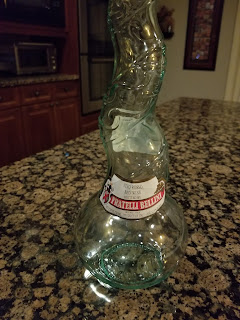Recommending Wines
I periodically, as in almost daily now, am asked by someone to recommend wines. Now, that could be a wine, a wine pairing, a particular bottle, a grape, a style of grapes, or practically anything else. That's okay; I enjoy doing it. I think most of us enjoy sharing a passion of ours with others no matter what that passion might be. From what I hear, most of the wines that I do recommend are successful recommendations. That is, the people that I make the recommendations to are pleased. Sometimes, they make it easy. Other times, well, they don't make it even remotely easy. As I said, I am more than happy to work with you. But, if you want me help make you happy in this fashion, help me to help you. What do I mean by that? Give me information. The more information, the better. Here's an example of a challenging request that came up during my essentially weekly visit to Costco last weekend. A nice enough lady (NEL) saw me looking at the assortment of wines they carry and beg
